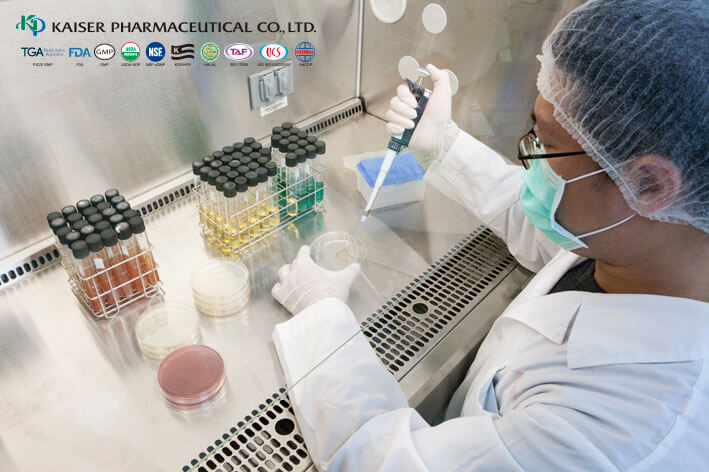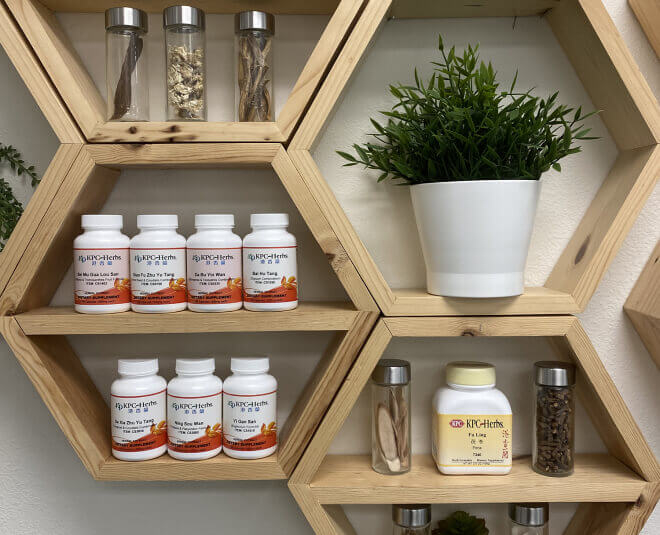 At KPC, we know faster isn’t always better. Our quality control methods incorporate several steps, a variety of tests, and often meticulous attention to detail. Our production team understands the responsibility KPC has to our practitioners and clients to provide the highest level of quality herbal products.
At KPC, we know faster isn’t always better. Our quality control methods incorporate several steps, a variety of tests, and often meticulous attention to detail. Our production team understands the responsibility KPC has to our practitioners and clients to provide the highest level of quality herbal products.
KP’s Production Facility Certifications
Our production facility is certified under the most stringent standards in the world that are set for the importation of raw materials. All of our materials are tested through DNA identification to ensure species authentication.
Once laboratory testing is launched, every material is tested through, at minimum, the three basic gatekeepers:
1) characteristics verification
2) microscopic identification, and
3) verification of chemical properties.
This ensures the safety, efficacy, and consistency of the materials. Without these three basic gatekeepers, materials may unknowingly contain chemicals or other hazardous items in amounts that can be harmful to humans. One example is heavy metals.
Heavy Metal Detection
Herbs have been used in China as medicine for thousands of years. In the pre-industrial past, these herbs grew freely in pristine nature without any danger of contamination by pesticides or other environmental pollutants. The presence of a marginal amount of naturally occurring heavy metals in the herbs was never a cause for concern.
But in today’s modernized society, farmers liberally use pesticides and pesticides on their crops, while industry-caused pollution, such as acid rain and factory-produced wastewater, can damage and dangerously alter the nature of the herbs. Therefore, the presence of heavy metals in Chinese herbal ingredients has become a serious concern for all consumers.
Most of Taiwan’s herbal ingredients originate from mainland Chinese suppliers. Precautions must be taken to prevent suppliers from using inferior pesticides or from spraying their crops with excessive quantities of pesticide. This ensures that our concentrated granules are free from the dangers of pesticide residuals and excessive heavy metals.
KPC Goes Above and Beyond
Though pesticide testing is not required by law, KPC completes this testing due to the industrialization of areas near agriculture farms and the increased use of pesticides. We believe this is important to provide the highest quality herbal products for our customers, distributors, and practitioner partners.
To detect contamination in batches of our herbs, KP uses ICP spectrometry analysis to identify the presence of the five heavy metals that pose the most potential damage to human health: lead, copper, cadmium, arsenic, and mercury.
Production Process
Production of herbal products is comprised of three major steps: extraction, concentration, and granulation. The active ingredients of the herbs are extracted and concentrated at low temperatures before going through our patented volatile essential oil extraction technology, which seals in the essence of the Chinese herbs.
Complex testing procedures are implemented during production to ensure that all semi-finished products meet the standards. All products must go through every quality control procedure before being transported to storage.
The linear and fully automated production lines are the key to minimizing the chance of cross-contamination. Our ISO 17025-certified laboratory is an assurance of the safety and efficacy of our products.
How KP Compares to Other Herbal Supplement Manufacturers
As experts in Chinese herbal products, our pursuit of excellence includes participating in blind tests which compare our products to those of other brands. This is our commitment to becoming the best in the industry.
Our heritage of five generations speaks of our trust in nature’s healing power and our commitment to healthy living. We are born in nature, raised by nature, and live on nature’s bounty. We strive to be the safest and most trusted choice of health enhancement for every person in the world. Contact our team to learn more.
________
*Please note: These statements have not been evaluated by the FDA. This article is not intended to suggest specific treatments for patients or that any supplements mentioned prevent or cure diseases or problems. Before taking any herbs, all patients should discuss their options with a licensed practitioner, including any other medications the patient is currently taking, as there may be contraindications between pharmaceuticals and herbs.
